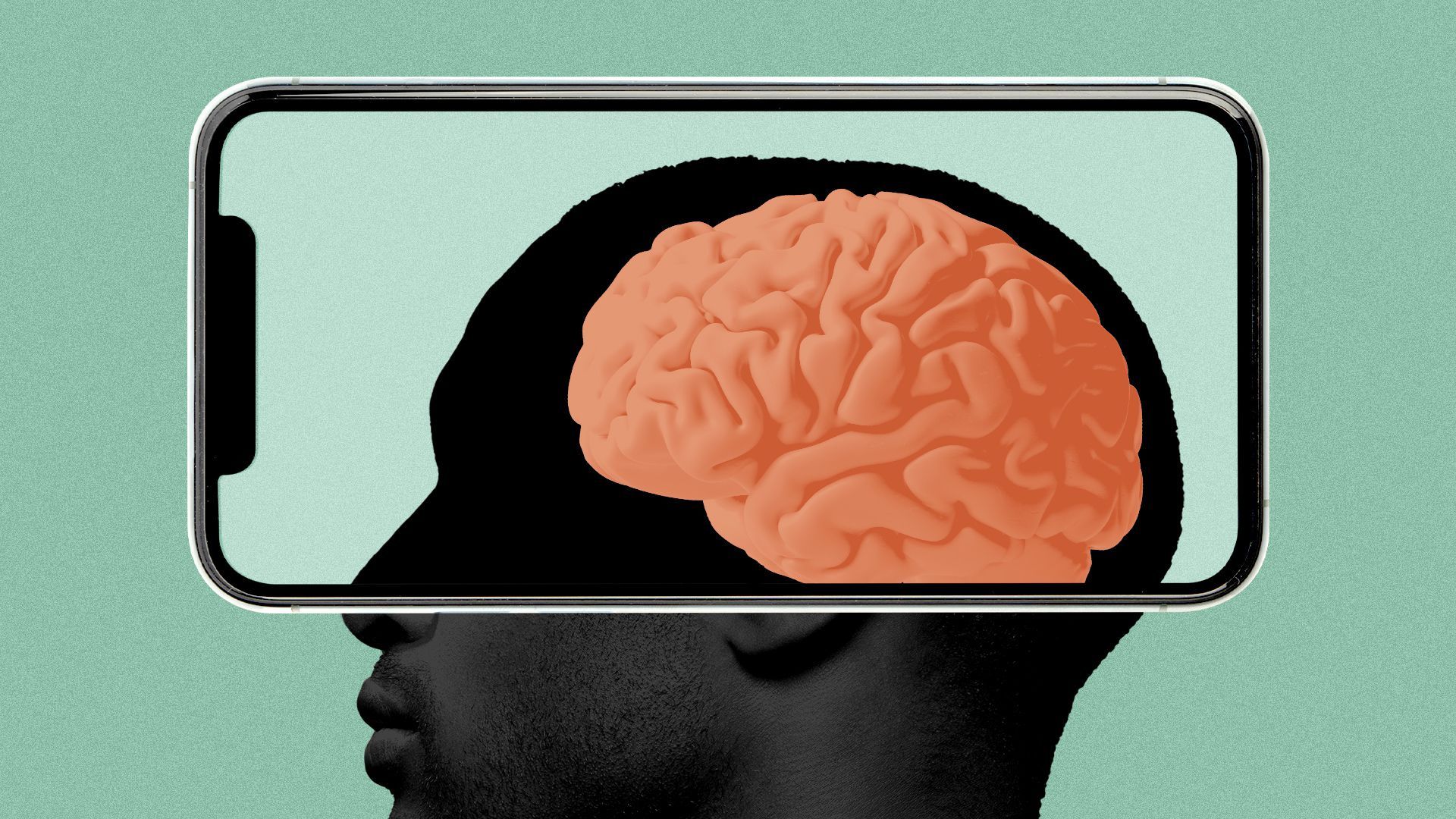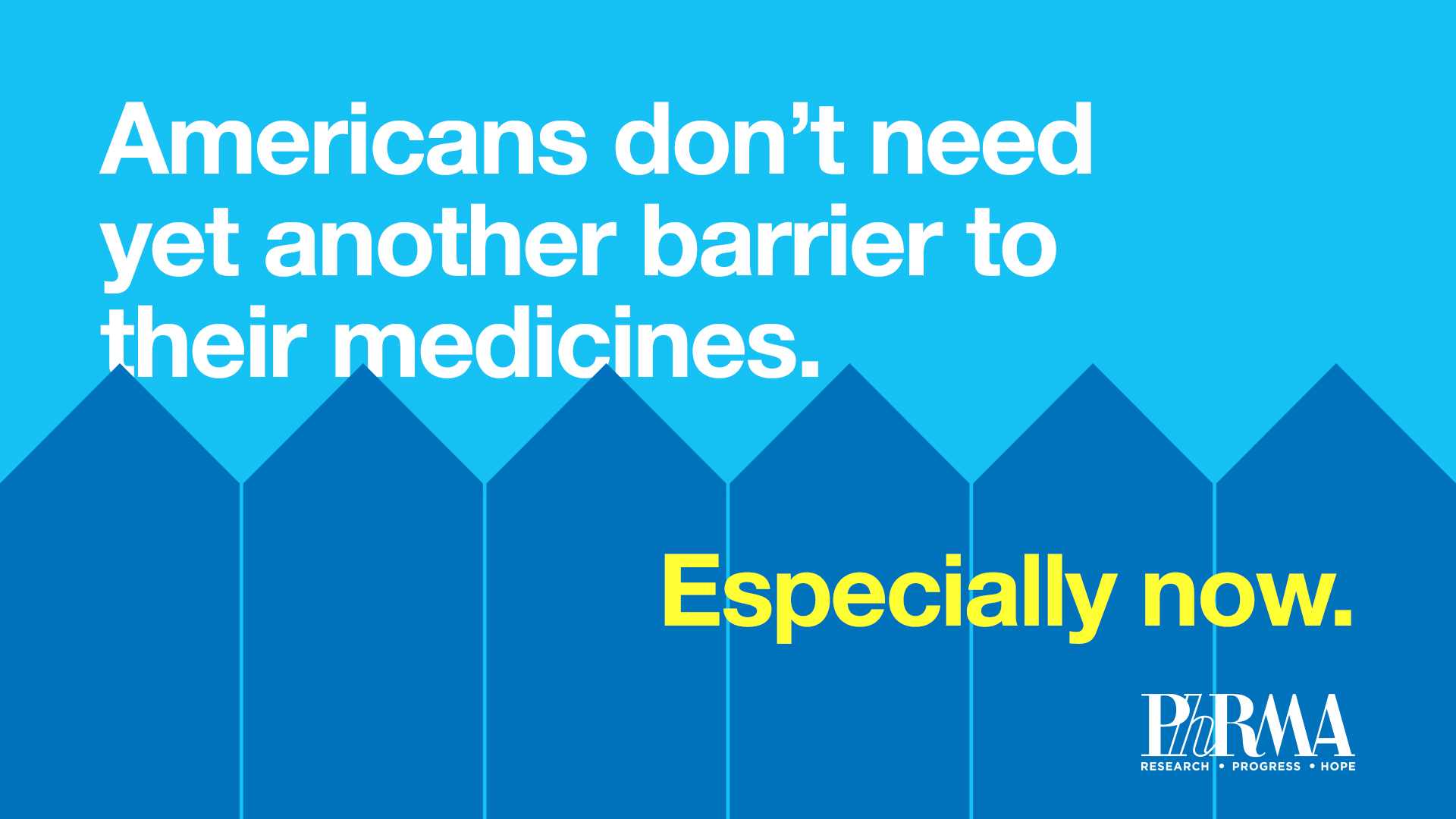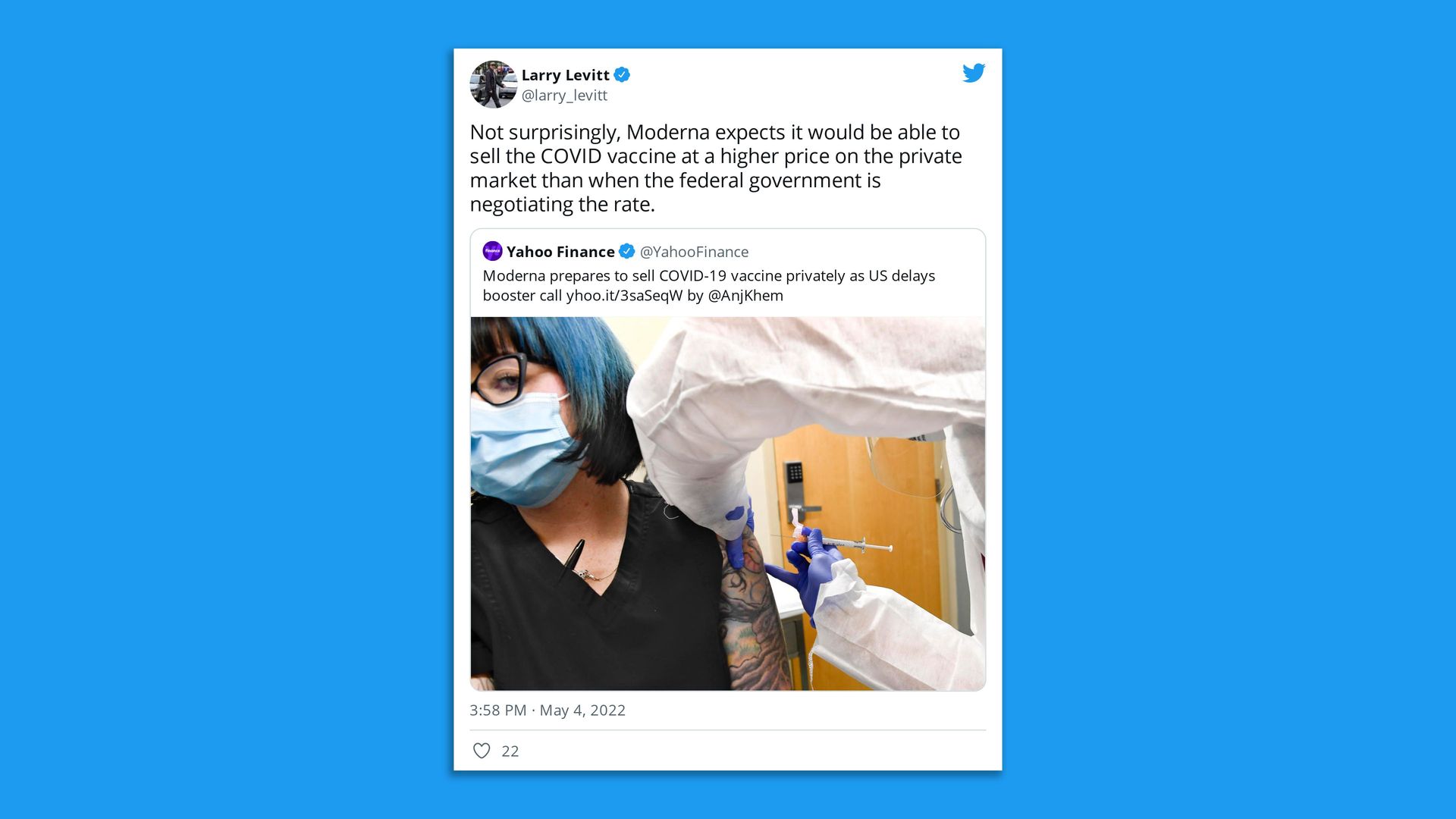Plus: COVID cases jump in Northeast | Thursday, May 05, 2022
| | | | | | | Presented By PhRMA | | | | Axios Vitals | | By Tina Reed · May 05, 2022 | | Good morning, Vitals readers. Today's newsletter is 763 words or a 3-minute read. | | | | | | 1 big thing: The trouble with telehealth prescriptions |  | | | Illustration: Brendan Lynch/Axios | | | | Mental telehealth startups such as Cerebral and Done Health are coming under increased scrutiny for the way they prescribe drugs with a high potential for abuse like Adderall. Driving the news: Cerebral announced quality and safety changes on Wednesday, telling clinicians it will stop prescribing Adderall and other controlled substances to treat attention deficit hyperactivity disorder for new patients. - The decision came after Cerebral's preferred pharmacy, Truepill, said it would halt prescriptions for Adderall and other controlled substances.
- Large pharmacies like CVS and Walmart blocked or delayed prescriptions from Cerebral over concerns that they were writing "too many prescriptions for Adderall and other stimulants" to new patients, per the Wall Street Journal.
The big picture: Relaxed telehealth rules during the pandemic fueled a telehealth boom — including in behavioral health — and have been widely lauded for improving access to care during a crisis. - But the Drug Enforcement Agency's pandemic-era waiver of the Ryan Haight Act, which blocked companies from prescribing controlled substances online, raised the specter of companies becoming "Adderall mills," sources recently told Axios' Erin Brodwin.
In other words: "We want to avoid an opioid crisis part two," University of Michigan clinical assistant professor Erik Gordon told STAT News about the industry moves. What to watch: The DEA rules are expected to last only until the end of the public health emergency which is currently set to expire July 15. - The DEA is developing a special registration process to allow telehealth prescribing of controlled substances.
- The American Psychiatric Association and the American Telemedicine Association are among 70 organizations — including Cerebral — pushing to permanently remove the prior in-person requirement and restrictions on the location of the patient being treated.
|     | | | | | | 2. COVID cases jump in Northeast, Pacific Northwest |  Data: N.Y. Times; Cartogram: Kavya Beheraj/Axios COVID cases are rising in all but four states and Washington, D.C., as Omicron and new, potentially more transmissible versions of the Omicron variant, sweep across the U.S., Axios' Kavya Beheraj and I report. The big picture: COVID rates in the Northeast are reaching some of their highest levels in three months. But the South may be in for a new wave come summer. By the numbers: There were roughly 62,500 new daily cases over the last week, up 46% from 43,000 two weeks ago. - The U.S. averaged roughly 340 deaths from COVID a day, down 12% from about 390 two weeks ago.
Go deeper. |     | | | | | | 3. LGBTQ youth mental health alarm |  Data: The Trevor Project; Chart: Axios Visuals Almost half of LGBTQ youth seriously considered attempting suicide in the past year, Axios' Shawna Chen writes about survey results published Wednesday by The Trevor Project. The big picture: In the last year, the U.S. has seen a record number of anti-trans bills in state legislatures — many specifically focused on trans youth. The National Suicide Prevention Lifeline (1-800-273-8255) provides 24/7, free and confidential support for anyone in distress, in addition to prevention and crisis resources. Also available for online chat. |     | | | | | | A message from PhRMA | | Voters want Congress to address health insurance | | |  | | | | Many Americans reject so-called government "negotiation" once they learn it could sacrifice access, choice and innovation. The story: Respondents find health care coverage costs unreasonable and a top priority health care issue for policymakers to address today. Read more in the new survey. | | | | | | 4. Tweet du jour |  | | | Screenshot: @larry_levitt (Twitter) | | | | Moderna has signed contracts worth $21 billion for its COVID vaccines with buyers around the world through the rest of the year — but not with the U.S. government, CEO Stéphane Bancel told Yahoo Finance. - COVID funding has stalled in Congress meaning there's no cash to buy boosters for the fall.
- Bancel said the company could still get shots in pharmacies if that changes. But for now, the company making plans to go completely commercial where it can command higher prices from non-government sales, Bancel said.
|     | | | | | | 5. Catch up quick | | 💉 On the heels of the news that Amazon subsidiary PillPack is paying a $6 million settlement for fraudulently over-billing for insulin and over-dispensing the drug, sources tell Axios' Erin Brodwin the practice was widely acknowledged and that higher-ups dismissed staff concerns about the matter. (Axios) 📲 The CDC bought access to location data harvested from tens of millions of cell phones in the U.S. to track individuals' movements when it came to COVID-related compliance — but that's not all they planned to use the data for. (Vice) 💊 Well that turned around quickly... The FDA said Wednesday that there is "no evidence" that a second Pfizer COVID pill would stop repeat symptoms. It contradicted a suggestion by Pfizer's CEO that patients could take more of the COVID pill after relapse. (Axios) 💵 Congress should move forward on a vote on COVID preparedness funding separately from measures on supporting Ukraine and immigration policy, Sen. Tom Carper (D-Del.) told me. (Axios) |     | | | | | | A message from PhRMA | | Out-of-pocket costs create significant barriers to care | | |  | | | | New data show that 35% of insured Americans spent more on out-of-pocket costs than they could afford in the past month. The story: Many patients are experiencing an insurance system that isn't working for those who need care. Learn how insurance is leaving patients exposed to deepening inequities. | | |  | It's called Smart Brevity®. Over 200 orgs use it — in a tool called Axios HQ — to drive productivity with clearer workplace communications. | | | | | | Axios thanks our partners for supporting our newsletters. If you're interested in advertising, learn more here.
Sponsorship has no influence on editorial content. Axios, 3100 Clarendon Blvd, Suite 1300, Arlington VA 22201 | | | You received this email because you signed up for newsletters from Axios.
Change your preferences or unsubscribe here. | | | Was this email forwarded to you?
Sign up now to get Axios in your inbox. | | | | Follow Axios on social media:    | | | | | |








No comments:
Post a Comment